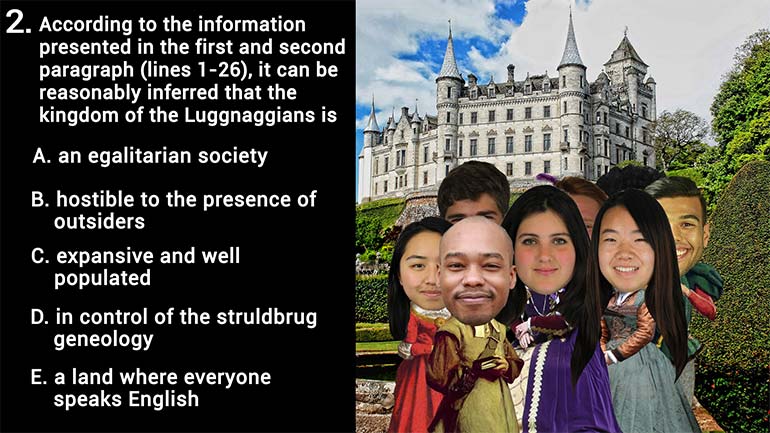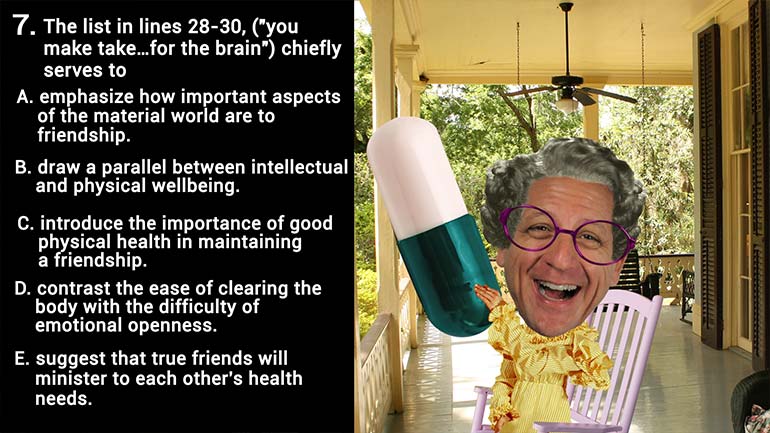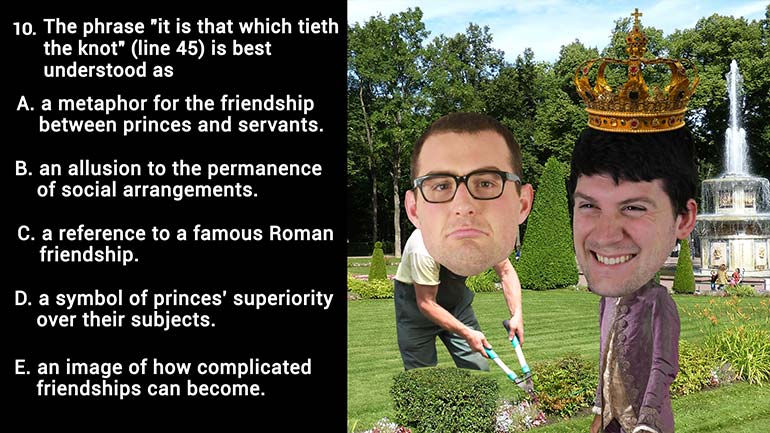ShmoopTube
Where Monty Python meets your 10th grade teacher.
Search Thousands of Shmoop Videos
AP English Literature: Work and Sleep 4 Views
Share It!
Description:
Lines 20-24 ("No one would…work and sleep") suggest that the brook
Transcript
- 00:00
Sorry Okay AP English Lit People last one in the
- 00:06
section Here we go Lines Twenty three twenty four No
- 00:22
one yeti out Ogata and sleep This section suggests that
- 00:26
the brook What Brooke What Well Throughout the poem the
- 00:34
narrator explain Quiz History with and Love Off the Brook
Full Transcript
- 00:38
which has been forced underneath the new city However in
- 00:41
the last stanza she reveals that the Brook may have
- 00:43
kept the city from both work and sleep suggesting that
- 00:47
it still has influence even if it's you know buried
- 00:51
six feet under It's like the beginning of a horror
- 00:54
film The characters don't see anything but they know something's
- 00:57
afoot right Like I know who you did last summer
- 01:00
whatever that movie was So the answer's a maybe important
- 01:03
even if it's not visible And the loser bowl well
- 01:06
the Brook hasn't been a race from memory so get
- 01:09
rid of be because the narrator is describing it and
- 01:12
it's amazing strength and impulse cc There he seems resigned
- 01:17
to the fact that it has been damned staunched at
- 01:20
its source with cinder loads that say that three times
- 01:24
fast with the list and fourth underground So get rid
- 01:26
of D But he certainly thinks it's still in odds
- 01:29
with the city So yeah get rid of G There's
- 01:31
no equilibrium there So the answer is a on DH 00:01:34.78 --> [endTime] That's it We're done good luck on the test
Up Next
According to the information presented in the first and second paragraph (lines 1-26), it can be reasonably inferred that the kingdom of the Luggna...
Related Videos
In line 27, the adjective "inexpressible" is used
The main idea of the second paragraph (lines 24-33) can best be restated that
The list in lines 28-30, ("you make take sarza for the liver…castoreum for the brain") chiefly serves to
The phrase "it is that which tieth the knot" (line 45) is best understood as




